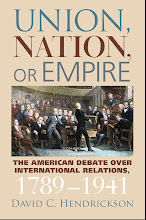The world financial system is undergoing a kind of seizure, with assets crashing more wildly than they have done since the Great Depression. At the core of the crisis is the mayhem in the credit markets, where interest rates are going up sharply. The popping of the housing bubble has brought to dramatic pitch the unsustainable levels of US debt across wide sectors (not just housing). The extreme leverage on dodgy assets characteristic of US and European financial institutions has made many of them insolvent if their assets are judged on a “mark-to-market” basis. Various signs point to a deep recession, at a minimum, possibly much worse.
The financial crisis will have extraordinary implications for just about everything. It marks the birth of a new era quite as much as 9/11 did. We need to reflect about the lessons, nearly all of which are rather grim, and start asking in earnest about the political and economic consequences.
I give US authorities very low marks in their response to the financial crisis. Paulson and Bernanke have mistakenly characterized the crisis as a liquidity rather than solvency issue. They have also failed to introduce any coherent limit on the government’s acquisition of toxic private debt. The Paulson Plan is especially wrong-headed, as being neither equitable to the taxpayer nor efficacious in its stated aim (getting banks to lend again). The commitment of public funds to insolvent institutions must have shareholder wipeouts and debt-to equity conversions as a basic feature. The real bill of the US government’s strategy has been minimized in a kind of shell game, but the opportunity costs will likely prove tremendous. There is much cause for depression in both the terrifying implications of an economic collapse and in the response of US authorities to the crisis.
10/26/08
skip to main |
skip to sidebar

YOU HAVE EVERY RIGHT TO FEEL THAT WAY.
This blogbook offers, with the aid of various charts, graphs, and tables, a pictorial guide to the 2008 financial crisis.
Navigation
Table of Contents
To see the presentation in order, use either the Labels below for each chapter or the Table of Contents for individual entries.
The initial presentation was made in October 2008 and was last updated in January 2009, though I recently substantially expanded the list of sources. Lately, I have been working on a blogbook called Energy Predicament.
June 2011
To see the presentation in order, use either the Labels below for each chapter or the Table of Contents for individual entries.
The initial presentation was made in October 2008 and was last updated in January 2009, though I recently substantially expanded the list of sources. Lately, I have been working on a blogbook called Energy Predicament.
June 2011
Featured Posts
Labels
- A. Introduction (4)
- B. Financial Stress (19)
- C. Housing Bubble (11)
- D. Debt Binge (14)
- E. Derivatives Jungle (7)
- F. Scale of Losses (7)
- G. Rescues and Remedies (12)
- H. Global Imbalances (6)
- I. Lessons (9)
Top Stops in the Financial Blogosphere
-
-
-
The Epic Struggle Just Ahead1 day ago
-
-
History of Econ Summer Camp2 days ago
-
-
-
-
I Bid 2025 Adieu3 weeks ago
-
It’s A Google Problem4 weeks ago
-
-
RTO Gets Serious: October 12 years ago
-
-
A Few Quick Announcements2 years ago
-
-
Links 5/7/20223 years ago
-
Thinking Outside the Grid6 years ago
-
-
The rise and fall of bitcoin8 years ago
-
The Blog Moves On8 years ago
-
Learning from Harvey8 years ago
-
Supply-Side Amnesia8 years ago
-
A Trip Through Putin Country8 years ago
-
Surviving America’s Political Meltdown8 years ago
-
Revenge of the Experts8 years ago
-
A Dim Outlook for Trumponomics8 years ago
-
-
-
Thursday Morning Link9 years ago
-
-
-
-
-
-
Q&A: The Fed’s Rate Cut17 years ago
-
-
-
-
-
About Me
I like charts.
I am not a dismal scientist.
My name is David Hendrickson. I teach international relations and American foreign policy at Colorado College.
My dubious record for 2008 is reviewed here, by some miscreants.
I am not a dismal scientist.
My name is David Hendrickson. I teach international relations and American foreign policy at Colorado College.
My dubious record for 2008 is reviewed here, by some miscreants.
FEELING GLUM AND OUT OF SORTS, PERHAPS A BIT ANGRY?

YOU HAVE EVERY RIGHT TO FEEL THAT WAY.
Kudos
A good number of my charts first appeared at Contrary Investor. Though oriented toward investors, CI offers a superb analysis of the real economy and its relationship to the financial system. It is an indispensable source not only for individuals but also for any good library. So subscribe, dammit.

